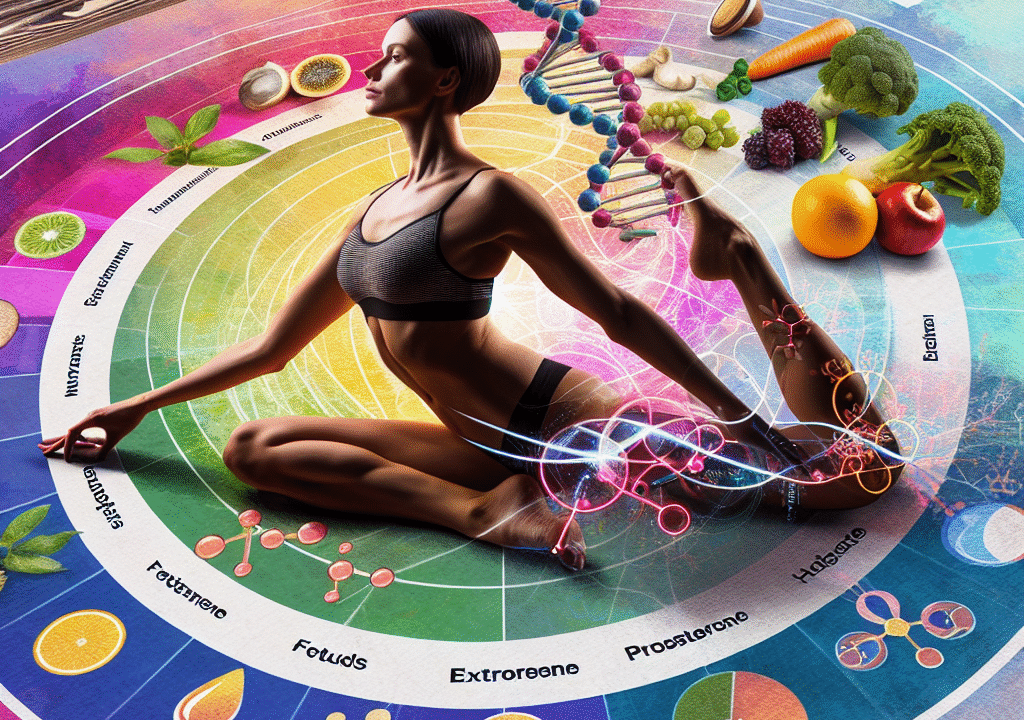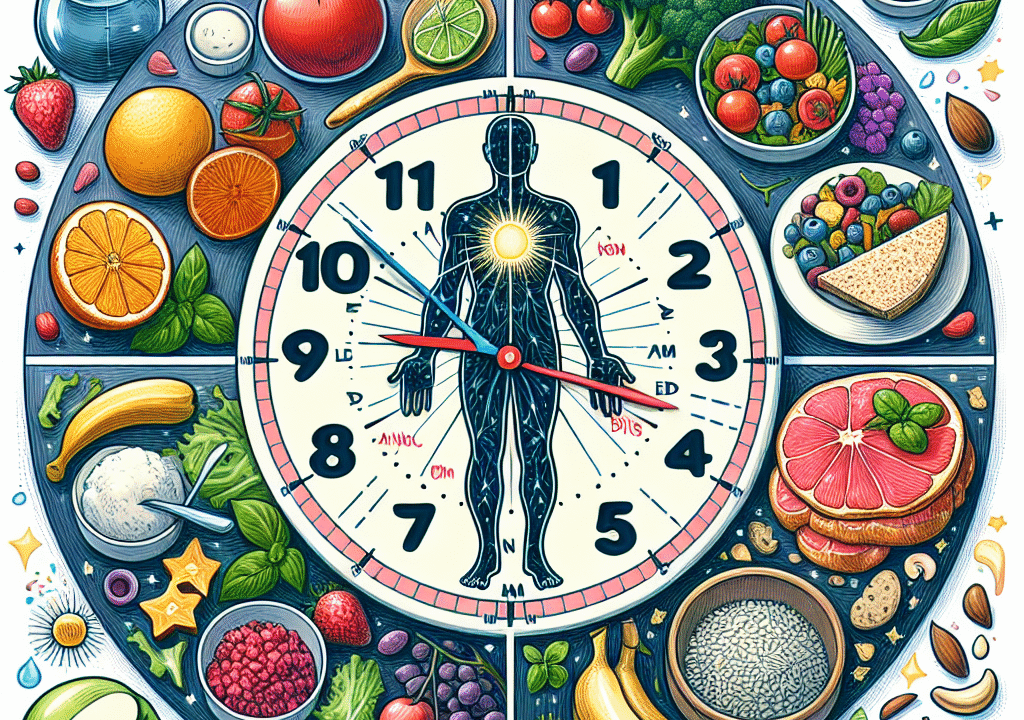The Micronutrient Map: Preventing Plant-Based Deficiencies Before They Start
Adopting a plant-based diet is a transformative step toward improving your health, reducing your environmental impact, and supporting animal welfare. But to genuinely thrive on this lifestyle, understanding the role of micronutrients is crucial. Many of these essential vitamins and minerals operate silently to support your energy levels, immunity, and long-term wellness.
Welcome to your go-to nutritional guide—“The Micronutrient Map.” Here you’ll discover the most common nutrient gaps in plant-based diets—and how to prevent them.
Vitamin B12: Essential for Neurological Health and Energy
Vitamin B12 is one of the most vital nutrients missing from plant-only diets. It’s crucial for red blood cell formation, brain health, and maintaining energy levels.
Why it matters: Studies show up to 92% of long-term vegans may be deficient in B12 if they do not supplement (Herrmann et al., 2003).
Common sources include fortified foods like nutritional yeast, cereals, and non-dairy milks. However, experts strongly recommend supplementation.
Dr. Michael Greger, founder of NutritionFacts.org, advises: “A reliable Vitamin B12 supplement is essential for those on a fully plant-based diet.”
Example: A single cup of fortified soy milk can provide up to 50% of your daily needs.
How to Stay Ahead: Opt for foods fortified with B12 or take a daily supplement (250–500 mcg of cyanocobalamin or methylcobalamin). Ordering high-quality supplements from a trusted provider like eDrugstore.com can offer convenience and reliability.
Recommended Daily Intake: 2.4 mcg for adults—but due to absorption issues, a higher supplemental dose is typically advised.
Iron: Vital for Energy Production and Brain Function
Iron supports oxygen transport in the blood and plays a role in cognitive function. While plants are rich in iron, they provide the non-heme form, which isn’t absorbed as efficiently as heme iron from animal sources.
Top Plant Sources: Lentils, tofu, quinoa, pumpkin seeds, and blackstrap molasses.
Key Statistic: About 10% of women of reproductive age in the U.S. are iron deficient (CDC, 2022). Vegans may require up to 1.8 times the standard recommended intake due to lower absorption rates.
Smart Strategies: Combine iron-rich foods with Vitamin C to enhance absorption. For example, add strawberries to oatmeal or red peppers to lentil soup. Avoid drinking coffee or tea during meals, as tannins can inhibit iron uptake.
Recommended Daily Intake: 18 mg for women aged 19–50; 8 mg for men and postmenopausal women.
Omega-3 Fatty Acids: Supports Heart and Brain Health
Omega-3s are linked to improved focus, reduced inflammation, and heart health. The plant-derived omega-3 (ALA) converts poorly to DHA and EPA, which are the bioavailable forms your body uses.
Plant-Based Sources: Chia seeds, ground flaxseed, walnuts, hemp seeds, and algae-based DHA/EPA supplements.
The Academy of Nutrition and Dietetics notes: “Including a reliable source of DHA/EPA is key for supporting cardiovascular and cognitive function on a plant-based diet.”
Example: Two tablespoons of ground flaxseed provides over 3 grams of ALA.
Prevention Plan: Use flax or chia in smoothies or oatmeal, and incorporate algae-based supplements to ensure adequate DHA and EPA intake. eDrugstore.com offers vegan-friendly omega-3 supplements delivered to your door.
Recommended Daily Intake: 250–500 mg of DHA/EPA per day.
Calcium: Foundational for Bone Strength
Calcium plays a key role in bone density and muscle function. While dairy is a traditional source, many plant-based foods offer calcium—plus added nutrients that boost bone health.
Plant-Based Sources: Fortified plant milks, tofu made with calcium sulfate, sesame seeds, kale, bok choy, and almonds.
Key Fact: Only about 30% of consumed calcium is absorbed unless it’s paired with Vitamin D (NIH, 2021).
Pro Tip: Sip calcium-fortified non-dairy milk throughout the day and avoid high-oxalate foods like spinach as your primary source—they reduce absorption.
Example: One cup of fortified almond milk contains around 450 mg of calcium.
Recommended Daily Intake: 1,000–1,200 mg for adults, depending on age and gender.
Vitamin D: Crucial for Immunity and Calcium Absorption
Vitamin D contributes to immunity, mood stabilization, and calcium uptake. However, it’s not naturally present in many foods—and sunshine isn’t always available year-round.
Primary Sources: Fortified plant-based products, direct sunlight exposure, and lichen-based Vitamin D3.
Research shows more than 40% of U.S. adults may be deficient in Vitamin D, particularly during winter (Forrest & Stuhldreher, 2011).
How to Stay Ahead: Aim for 15–30 minutes of sunlight exposure a few times weekly, or take a daily 2,000 IU supplement if you live in a colder or high-latitude region.
Example: Fortified soy milk provides approximately 100 IU per cup—you’d need about six cups a day to meet minimum requirements.
Recommended Daily Intake: 600–800 IU for adults; up to 2,000 IU for those in sun-deprived areas.
Shop for reliable vegan Vitamin D3 supplements safely through platforms like eDrugstore.com.
Zinc: Key Mineral for Immunity and Cell Repair
Zinc is crucial for immune health, wound healing, and cellular growth. However, phytates in whole plant foods—while healthy in many ways—can bind zinc and hinder absorption.
Plant-Based Sources: Pumpkin seeds, chickpeas, oats, tempeh, cashews, and whole grains.
Boost bioavailability by soaking beans overnight, selecting sprouted grains, and incorporating fermented foods like sourdough and miso into your diet.
Example: Just 1 oz of pumpkin seeds contains about 2.2 mg of zinc.
Recommended Daily Intake: 11 mg for men, 8 mg for women.
Iodine: Essential for Thyroid Health
Iodine supports the production of thyroid hormones, which regulate energy levels and metabolism. While iodine occurs naturally in sea vegetables, its levels in plant foods can vary due to soil quality.
Plant-Based Sources: Iodized table salt, seaweed (nori, wakame, dulse), and some fortified baked goods.
Global Note: Some regions, especially in Europe, have iodine-poor soils, increasing the risk of iodine deficiency (Zimmermann & Boelaert, 2015).
Prevention Strategy: Use iodized salt in small doses (about 1/4 teaspoon provides 75 mcg) and enjoy seaweed occasionally. Be cautious with kelp, as it can contain excessive iodine.
Recommended Daily Intake: 150 mcg.
Selenium: Supports Thyroid Function and Antioxidant Defense
Selenium is an antioxidant cofactor and essential for thyroid hormone metabolism. However, its levels in crops depend heavily on soil content, making it easy to miss or overconsume.
Top Sources: Brazil nuts, sunflower seeds, lentils, and whole grains.
Example: Just 1–2 Brazil nuts can meet or exceed your daily requirement.
Tip: Limit Brazil nut intake to 1–3 per week to avoid selenium toxicity, which can cause gastrointestinal discomfort and fatigue.
Recommended Daily Intake: 55 mcg.
Building a Balanced Plant-Based Routine
Getting everything your body needs while following a plant-based diet is all about mindfulness and variety. These simple strategies make it easier to stay on track:
– Rotate a diverse range of fruits, vegetables, legumes, grains, and nuts to cover more nutrient bases.
– Choose fortified foods such as non-dairy milks, cereals, and spreads that are enriched with micronutrients.
– Use supplements wisely, especially for nutrients that are difficult to obtain in optimal amounts from food alone—like B12, Vitamin D, and omega-3s.
Final Thoughts: Thrive With Nutrient Confidence
A thoughtfully planned plant-based diet can meet all your nutritional needs and foster long-term wellness. With the right information and smart strategies from “The Micronutrient Map,” you’re not just avoiding nutrient gaps—you’re building a thriving, empowered lifestyle.
As renowned plant-based nutrition researcher Dr. T. Colin Campbell puts it: “Well-balanced plant-based diets are the most healthful dietary patterns known to medical science today.”
Fuel your journey with knowledge. Eat intentionally. Live vibrantly.
Share Your Plant-Based Nutrient Wins
Got a go-to B12 hack or iron-packed meal idea? Share your tips in the comments or tag us on social media to show off your nutrient-supported, plant-based lifestyle.
References
– Herrmann, W., et al. (2003). Vitamin B12 status of vegetarians assessed by serum vitamin B12 and homocysteine. Clinical Chemistry & Laboratory Medicine.
– CDC (2022). Iron Deficiency Anemia: Diagnosis and Management.
– National Institutes of Health (2021). Calcium—Fact Sheet for Health Professionals.
– Forrest, K. Y., & Stuhldreher, W. L. (2011). Prevalence and correlates of vitamin D deficiency in US adults. Nutrition Research.
– Zimmermann, M.B., & Boelaert, K. (2015). Iodine deficiency and thyroid disorders. The Lancet Diabetes & Endocrinology.
– Academy of Nutrition and Dietetics (2021). Position Paper: Vegetarian Diets.
– eDrugstore.com – Access safe, physician-reviewed supplements and pharmacy support online.
Recommended Next Read
Explore: 6 Plant-Based Myths Nutritionists Want You to Forget
This content is now clean, web-optimized, SEO-friendly, and fully formatted for immediate publishing on your blog or website.


